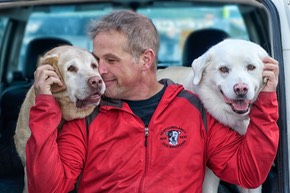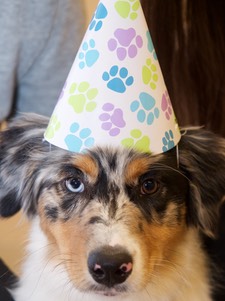
Puppy Socialization
What is the most important thing you can do for the healthy development of your puppy?
Most owners would provide a litany of responses ranging from proper nutrition to early veterinary care. Truth is while these responses are important, the most vital and often overlooked thing you can do for your puppy is provide early proper and extensive socialization. It is actually behavioural issues, not infectious diseases that are the number one cause of death for dogs under three years of age (AVSAB, 2015).
Improper or poor socialization is one of the most common causes of behaviour issues in dogs.
From 3 weeks to about 3 months of age is a puppies sensitive period for socialization (Dr. Sophia Yin, 2011). It is the most influential time in a dog’s life. In this period new owners often focus on house training, crate training and teaching soft mouth but they neglect the critical practice of early exposure.

Desire to self socialize
The first three months are known to be the period when a puppies desire to self socialize outweighs its fear of new experiences. Puppies who do not get adequate socialization during this period tend to be fearful of unfamiliar people, dogs, sounds, objects and environments. It is important to note that most bites that occur later in a dog’s life are not because the dog is dominant, territorial or protective as is so often believed by people, but because a dog is fearful and unsure. A socialized dog with many good experiences under his belt is a confident dog. A confident dog is a dog that feels safe and as a result, a confident dog is a dog that is safe to be around (Dr. Ian Dunbar, 2007).
So what does proper socialization entail? Socialization means exposing your puppy to as many new people, animals, environments and other stimuli as possible without overwhelming him. Over-stimulation of a young puppy can result in excessive fear, withdrawal or avoidance behaviour (Becker, 2016).

What does a properly socialized puppy look like?
A properly socialized puppy is:
- Handled extensively and positively from birth. The puppy learns to accept touching of all body parts
- Exposed to as many people, other animals, places and situations as possible in fun and exciting ways
- Encouraged to explore and investigate his environment
- Allowed to experience a variety of toys and games, surfaces and other stimuli at his own comfort rate
- Brought along often on car rides, walks and visits to new environments with his owner

Proper socialization produces changes on a mental and biological level
Proper socialization such as this will engage all of your puppy’s senses through exposure to the sights, sounds and smells of day-to-day life. Your puppy will learn to associate these experiences with positive feelings. There is even evidence to suggest that early proper socialization and exposure produces an adaptive change in your puppy’s pituitary-adrenocortical system enabling your dog to cope more effectively with stressful situations later in life (Serpell and Jagoe, 1995).
What should an owner do?
How does one socialize their puppy properly?
1. Enrol in a well run quality puppy class. These classes can be a goldmine of opportunity for both you and your puppy. It will teach you how to begin communicating properly with your puppy. It will allow your puppy the opportunity to play with other puppies and people in fun and exciting ways.
2. Play Pass the Puppy. Invite friends and family to meet and greet your puppy. Try to include a diversity of people of varying age, sex and ethnicity. If your friends have friendly dogs and cats, invite them too.
3. Expose your puppy to new sights, sounds and smells. Bring your puppy for car rides. Frequent new places where there is lots of activity.
4. Bath, groom and generally handle your puppy. Expose your puppy to nail clippers, brushes, water and bath time. This will pay dividends later in life when he is brought to the vet or the groomer.
5. Above all, make this exposure fun for your puppy. Puppies have different personalities. Some are more fearless than others. Do not push your puppy too far too fast. Allow your puppy to explore new situations at his own comfort level rewarding heavily for meeting those challenges. Puppies tend to adapt quickly. Keep exposure positive. Use short controlled durations with lots of positive reinforcement from you along the way.

Good puppies are made
In today’s society where there is increased focus on addressing public safety when it comes to dogs, where the public expects owners to act responsibly, a properly socialized puppy is one that all owners must strive to achieve. Good puppies are not born that way. Sure, genetics play an important role. However, good puppies are made. Too many owners shirk that responsibility, quickly complaining that work, family and life commitments are barriers to proper socialization. This often leads to behaviour issues being blamed on the puppy rather than owners accepting they are facing problems of their own creation. Time, patience and companionship mean long term benefits for your puppy as it matures into adulthood. A well socialized and confident dog is a dog that can be brought anywhere. It is dog that can be fully engaged with its family.
Ultimately isn’t that what most of us wanted from our dog in the first place?
Afterward:
For two great resources regarding bringing a puppy home and what to do after you get your puppy, check out Dr. Ian Dunbar’s “Before You Get Your Puppy” and “After You Get Your Puppy"